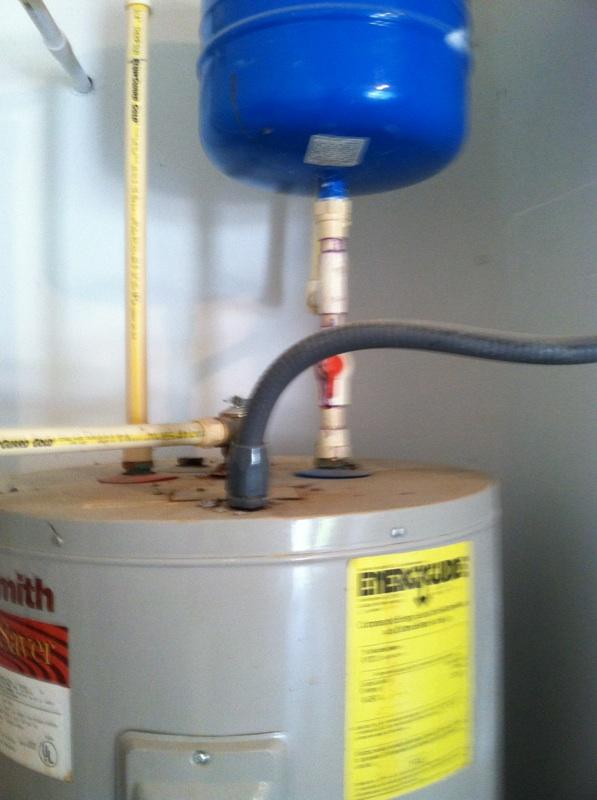Turning up your water heater does not make hot water last longer. Instead, it increases the water temperature, potentially leading to scalding.
Hot water is essential for various daily activities, such as showering, washing dishes, and doing laundry. Many people desire hot water that lasts longer, especially during peak usage times. Understanding how your water heater works can help maximize its efficiency.
The temperature setting directly affects the availability of hot water. A higher setting may seem appealing but can lead to safety concerns and energy waste. Knowing the right temperature for your needs is vital. By optimizing your water heater, you can ensure a steady supply of hot water without unnecessary risks or costs.
Page Contents
Introduction To Hot Water Dynamics
The water heater plays a crucial role in providing hot water. It heats water and stores it for use. Understanding how it works helps manage hot water effectively.
Hot water consumption varies by household. Factors include the number of people and usage patterns. Peak times often lead to quicker depletion of hot water. Regular usage, like showers and laundry, affects availability.
Setting the water heater temperature higher may increase the supply. However, safety concerns arise with very high temperatures. Always balance comfort and safety for the best results.

Credit: www.wikihow.com
Myth Vs. Reality
Many people believe that turning up the water heater makes hot water last longer. This idea is a common myth. Higher settings can cause water to heat quickly but may not extend hot water supply.
Most water heaters have a temperature setting of 120°F. This is safe and efficient. Turning the temperature higher can lead to burn hazards. It can also increase energy bills significantly.
Another belief is that more hot water means better showers. This isn’t true. Shower time depends on the tank size and flow rate. A larger tank holds more hot water, not a higher temperature.
| Setting | Effect |
|---|---|
| 120°F | Safe and efficient |
| 140°F | Risk of burns |
| Higher than 140°F | Increased energy costs |
How Water Heaters Work
Water heaters warm water through a process called thermal conduction. This involves heating elements or burners. These elements heat the water in the tank quickly.
Capacity refers to the amount of hot water a heater can store. A typical tank holds 30 to 80 gallons. Recovery rate measures how fast the heater can provide hot water after use.
For example, a heater with a recovery rate of 20 gallons per hour can refill quickly. This helps to ensure a steady supply of hot water for daily needs.
| Feature | Description |
|---|---|
| Capacity | 30 to 80 gallons of hot water |
| Recovery Rate | Speed of heating after use |
Factors Influencing Hot Water Availability
The tank size of your water heater affects how much hot water is available. A larger tank holds more water and can meet higher demands. Smaller tanks may run out quickly during peak usage times.
Water demand also plays a key role. Showers, washing machines, and dishwashers all use hot water. Knowing your household’s usage can help determine the right tank size.
Insulation is important for keeping water warm. Good insulation reduces heat loss from the tank. This means hot water stays hot for longer periods. Insulated pipes also help maintain temperature during distribution.
Experimenting With Water Heater Temperature
To test how water heater temperature affects hot water duration, a simple experiment was done. The temperature of the water heater was changed to different settings. Each setting was tested for hot water availability.
Hot water was used for various tasks. Tasks included showers, dishwashing, and laundry. The time taken for hot water to run out was recorded. Observations showed that higher temperatures provided more hot water.
At lower settings, hot water ran out quickly. Results indicated that a higher temperature setting allows hot water to last longer. This experiment highlights the importance of adjusting water heater settings for optimal usage.
Energy Efficiency And Safety Considerations
Setting the water heater to the optimal temperature can improve energy efficiency. A temperature of 120°F (49°C) is often recommended. This setting provides hot water while reducing energy costs.
Higher temperatures can lead to scalding risks. Water at 140°F (60°C) can cause burns within just a few seconds. Children and older adults are especially vulnerable.
Overheating can also damage plumbing fixtures. This can lead to leaks and costly repairs. Always check the temperature regularly to ensure safety.
Tips To Extend Hot Water Duration
Using water-saving fixtures can help save hot water. These fixtures reduce flow rates. This means less water is used without sacrificing pressure. Look for low-flow showerheads and faucets to save more.
Timely maintenance of your water heater is key. Check for any leaks regularly. Insulating your water heater keeps water hot longer. Adding insulation to pipes also helps maintain temperature.
Consider setting your heater to a lower temperature. This prevents overheating and uses less energy. Regularly flushing the tank removes sediment. This helps the heater work more efficiently.

Credit: www.reddit.com
Conclusion And Best Practices
Turning up the water heater can help make hot water last longer. Higher temperatures allow for more hot water storage. Yet, this may increase energy costs. Proper settings balance comfort and efficiency.
Here are some best practices:
- Set the water heater to 120°F for optimal performance.
- Insulate hot water pipes to reduce heat loss.
- Regularly check the anode rod for maintenance.
- Flush the tank yearly to remove sediment buildup.
These steps can improve hot water availability. Following these recommendations ensures hot water lasts longer and saves energy.

Credit: www.atlantisplumbing.com
Conclusion
Adjusting your water heater’s temperature can impact how long hot water lasts. While a higher setting may seem beneficial, it can also lead to safety risks and increased energy bills. Find a balance that meets your needs while ensuring efficiency.
Always prioritize safety and energy conservation for the best results.
